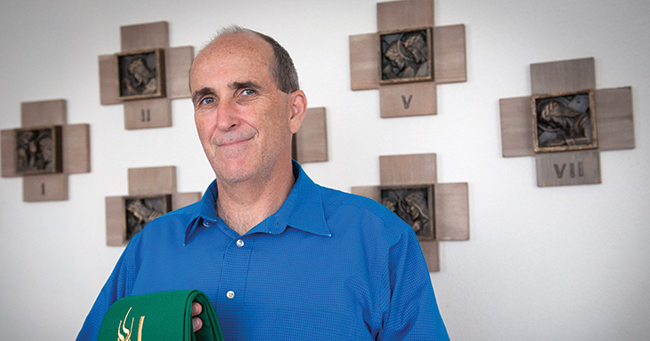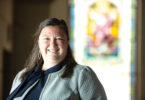
by Leon Suprenant
One thing I try to impress upon our deacons and deacon candidates is the fundamental importance of having a “plan of life.”
A plan of life helps us to be intentional about prioritizing our call to Christian holiness in the context of day-to-day living.
We all want to be saints (what is the alternative?), but do we take concrete steps to attain that goal? Someone starting a new company has a “business plan.”
Someone desiring to lose 100 pounds has a dietary regimen. The point is, if we want to accomplish something meaningful over a period of time, we need a plan. Good intentions without a plan won’t get us very far.
We are familiar with the rules of life of monks and some religious communities that call for an intense dedication to prayer apart from the business of the world.
Yet, those of us who are still “in the world” also need a “holiness plan” that accounts for our family and work responsibilities. If we don’t have a plan, the world will happily gobble up our time and attention.
We probably recognize intuitively that there is no “one-size-fits-all” plan. Everyone — preferably with the help of a spiritual adviser, mentor, spouse or friend — must craft their own plan of life that works for them. Even so, there are some points of commonality, and I’d like to highlight three of them.
Sanctify the day: All rules of life involve some aspect of sanctifying the day. One way to do this is through praying the Liturgy of the Hours — something required of deacons but heartily recommended to laypeople.
But even more simply, consecrating the day to the Lord upon rising in the morning and thanking him at the end of the day is a great start. Some pray the Angelus prayer at noon or the Divine Mercy chaplet midafternoon. Some families use dinner time as an opportunity to come together in prayer, whereas for others it is bedtime. Over time, such prayer marks the rhythm of the day.
Go deeper: It is also important that time be set aside for daily prayer that takes our relationship with God a little deeper. Unless we have a “daily appointment” with God, this simply isn’t going to happen, especially in today’s crazy busy world. I’m speaking here of meditation, Scripture reading, the rosary — whatever helps us grow closer to the Lord. And certainly an integral part of the mix is frequent recourse to the Eucharist and reconciliation.
Integrate: For a “plan of life” to be sustainable, it must be integrated into the fabric of one’s life, taking into account our daily needs, responsibilities and relationships. For most of us, the path to holiness is through the world, not around it.
Fostering within ourselves a Christian worldview is huge on this score. Thus, simple acts of service and mercy, voluntary penances and sacrifices, and even the heroic offering of our own sufferings increasingly become part of the “bigger picture” for us.
What’s your plan for becoming a saint?






